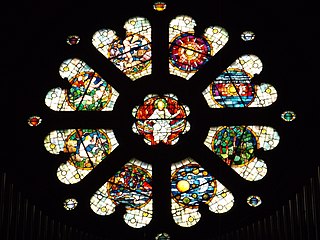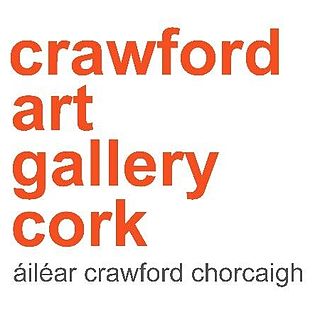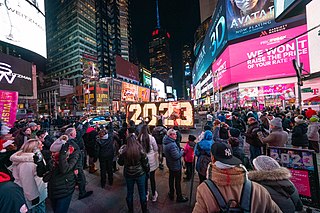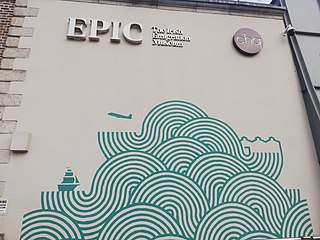
Dublin is the capital city of Ireland. On a bay at the mouth of the River Liffey, it is in the province of Leinster, bordered on the south by the Dublin Mountains, a part of the Wicklow Mountains range. At the 2022 census, the city council area had a population of 592,713, while Dublin and its suburbs had a population of 1,263,219, and County Dublin had a population of 1,501,500, making it the largest city by population on the island of Ireland.

A leprechaun is a diminutive supernatural being in Irish folklore, classed by some as a type of solitary fairy. They are usually depicted as little bearded men, wearing a coat and hat, who partake in mischief. In later times, they have been depicted as shoe-makers who have a hidden pot of gold at the end of the rainbow.

Tourism in Singapore is a major industry and contributor to the Singaporean economy. In 2019, 19,114,002 tourists visited the country, which was the highest recorded number of arrivals since independence in 1965. As of 2023, as tourist arrivals recovers from the impact of the COVID-19 pandemic, there were a total of 13,610,404 international tourists that have visited Singapore, which was more than twice the country's total population.

The Giant's Causeway is an area of approximately 40,000 interlocking basalt columns, the result of an ancient volcanic fissure eruption. It is located in County Antrim on the north coast of Northern Ireland, about three miles (4.8 km) northeast of the town of Bushmills.

The Cliffs of Moher are sea cliffs located at the southwestern edge of the Burren region in County Clare, Ireland. They run for about 14 kilometres. At their southern end, they rise 120 metres (390 ft) above the Atlantic Ocean at Hag's Head, and, 8 kilometres to the north, they reach their maximum height of 214 metres (702 ft) just north of O'Brien's Tower, a round stone tower near the midpoint of the cliffs, built in 1835 by Sir Cornelius O'Brien, then continue at lower heights. The closest settlements are the villages of Liscannor 6 km to the south, and Doolin 7 km to the north.

The culture of Ireland includes the art, music, dance, folklore, traditional clothing, language, literature, cuisine and sport associated with Ireland and the Irish people. For most of its recorded history, the country’s culture has been primarily Gaelic. Strong family values, wit and an appreciation for tradition are commonly associated with Irish culture.

Ballylongford is a village near Listowel in northern County Kerry, Ireland. As of the 2022 census, it had a population of 415.

Guinness Storehouse is a tourist attraction at St. James's Gate Brewery in Dublin, Ireland. Since opening in 2000, it has received over twenty million visitors.

The Crawford Art Gallery is a public art gallery and museum in the city of Cork, Ireland. Known informally as the Crawford, it was designated a 'National Cultural Institution' in 2006. It is "dedicated to the visual arts, both historic and contemporary", and welcomed 265,438 visitors in 2019. The gallery is named after William Horatio Crawford.

New York City received a ninth consecutive annual record of approximately 65.2 million tourists in 2018, the busiest tourist city attraction, and one of the world's overall busiest tourist attractions, counting not just overnight visitors but anyone visiting for the day from over 50 miles away, including commuters. Overall the city welcomed 37.9 million visitors who stayed overnight in 2018, of whom 13.6 million were international. Major destinations include the Empire State Building, Ellis Island, the Statue of Liberty on Liberty Island, Broadway theatre productions, Central Park, Times Square, Coney Island, the Financial District, museums, and sports stadiums. Other major visitor activities include luxury shopping along Fifth and Madison Avenues; entertainment events such as the Tribeca Film Festival; Randalls Island music festivals such as Governors Ball, Panorama and Electric Zoo; and free performances in Central Park at Summerstage and Delacorte Theater. Many New York City ethnic enclaves, such as Jackson Heights, Flushing, and Brighton Beach are major shopping destinations for first and second generation Americans.

Jeanie Johnston is a replica of a three-masted barque that was originally built in Quebec, Canada, in 1847 by the Scottish-born shipbuilder John Munn. The replica Jeanie Johnston performs a number of functions: it is an ocean-going sail training vessel at sea, and in port, it converts into a living history museum on 19th century emigration and, in the evenings, is used as a corporate event venue.

Tourism in the Republic of Ireland is one of the biggest contributors to the economy of Ireland, with 9.0 million people visiting the country in 2017, about 1.8 times Ireland's population. Each year about €5.2bn in revenue is made from economic activities directly related to tourists, accounting for nearly 2% of GNP and employing over 200,000 people. In 2011 alone, Ireland was voted 'Favourite holiday destination in the World' by readers of Frommer's Guide, Lonely Planet listed Ireland as the world's friendliest country and Cork City as one of the top ten cities in the world and the Irish tourist boards website, DiscoverIreland.com, was named the best tourist board website in the world. Most tourists visiting Ireland come from the United Kingdom, the United States, Germany and France.

Dún Aonghasa is the best-known of several prehistoric hill forts on the Aran Islands of County Galway, Ireland. It lies on Inis Mór, at the edge of a 100-metre-high (330 ft) cliff.

Dublin is the largest city and capital of Ireland, and is the country's economic hub. As well as being the location of the national parliament and most of the civil service, Dublin is also the focal point of media in the country. Much of Ireland's transportation network radiates from the city, and Dublin Port is responsible for a large proportion of Ireland's import and export trade.

The economy of the Republic of Ireland is a highly developed knowledge economy, focused on services in high-tech, life sciences, financial services and agribusiness, including agrifood. Ireland is an open economy, and ranks first for high-value foreign direct investment (FDI) flows. In the global GDP per capita tables, Ireland ranks 2nd of 192 in the IMF table and 4th of 187 in the World Bank ranking.

TitanicBelfast is a visitor attraction in Northern Ireland, which opened in 2012. A monument to Belfast's maritime heritage on the site of the former Harland & Wolff shipyard in the city's Titanic Quarter where the RMS Titanic was built. It tells the stories of the Titanic, which hit an iceberg and sank during her maiden voyage in 1912, and her sister ships RMS Olympic and HMHS Britannic. The building contains more than 12,000 square metres (130,000 sq ft) of floor space, most of which is occupied by a series of galleries, private function rooms and community facilities.

The Little Museum of Dublin is a local history museum situated at St Stephen's Green, Dublin, Ireland. The museum is located in an 18th-century Georgian townhouse owned by Dublin City Council. As of April 2024, the St Stephen's Green museum was "temporarily closed", with its operators reputedly planning to "reopen shortly" at an alternative venue on Dublin's Pembroke Street.

EPIC The Irish Emigration Museum, located in Dublin's Docklands, covers the history of the Irish diaspora and emigration to other countries. It was designed by the London-based design firm Event Communications, and was voted as "Europe's Leading Tourist Attraction" at the 2019, 2020 and 2021 World Travel Awards.

Event Communications, or Event, is one of Europe's longest-established and largest museum and visitor attraction design firms; it is headquartered in London.




















